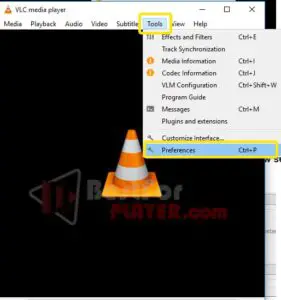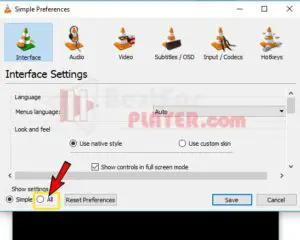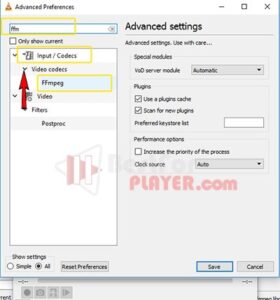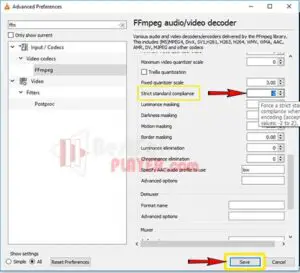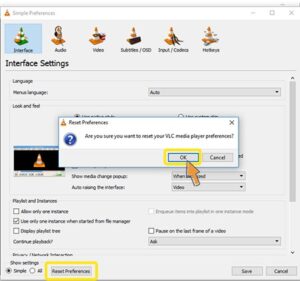Fix VLC Could Not Open the MPGA Audio Encoder
Why VLC could not open the MPGA audio encoder. People face a lot of problems and tell us how they can get rid of it.
This kind of is very difficult to solve but not impossible. After huge research, we collect the solution.
Here in this article, we share the tutorial with you. So read the whole article attentively.
Contents
Fix VLC Could Not Open the MPGA Audio Encoder
Here is the solution for VLC that could not open the mpga audio encoder. So let’s get started.
Change the “Strict Value Compliance” Settings
Click the VLC Tools menu and go to Preference.
After preference will appear. In the lower-left corner of the “Preferences” window, you will see a display settings option.
Here you click on all options.
Go to Input / Codec and double click on Video Codecs to enlarge its choices. Press on FFmpeg.
Alteration to Strike Standard Compliance – 2. Press the Save key at the bottom right of the Advanced Preferences window.
Restart the VLC media player and check if the above steps have set your issue.
Reset Preference
First click on Tools and go to Preference.
Click the Reset Preferences key at the lowest of the “Preferences” window. Press the OK button to confirm.
Restart the VLC media player and check if the above steps have resolved your issue.
FAQ:
What audio formats does VLC support?
VLC can transcode or stream audio and video in multiple formats depending on the operating system.
Including container formats: ASF, AVI, FLC, FLV, Fraps, Matroska, MP4, MPJPEP, MPEG-3 OG, PS, PVA, QuickTime file format, TS, WAV, WebMD.
Audio coding formats: AAC, AC-3, DV Audio, FLAC, MP3, SPIPS, Verbis.
Why is my audio faster than the video?
The most common reason audio and video go out of sync is due to the speed of audio processing. Audio is often treated much earlier than video, particularly when it comes to 4K video.
High-resolution video files take up a lot more space and as a result, it may take longer to process video signals than audio signals.

I am Bernard Damian, Founder of bestforplayer.com. I am a professional content writer, freelancer. I am a computer expert and have written articles for technology, computer and software magazines as well as websites like Techradar or PC Magazines. If you have any questions, comments, suggestions. feel free to contact us.

